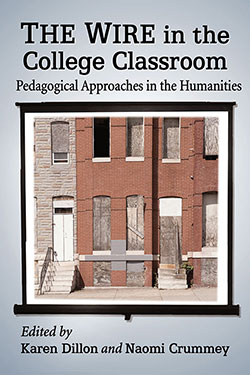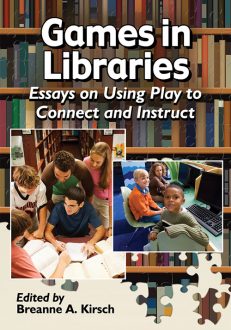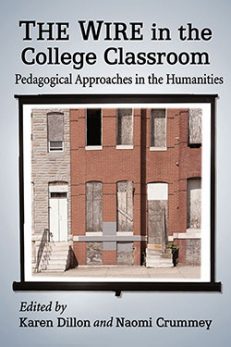The Wire in the College Classroom
Pedagogical Approaches in the Humanities
Original price was: $39.95.$19.99Current price is: $19.99.
In stock
About the Book
The Wire’s provocative subject matter, layered narrative and explicit critiques of American socio-economic institutions make it one of the most teachable television series in recent years. This collection of new essays offers practical examples for implementing The Wire in the college classroom as a cultural text to engage students in critical and creative inquiry. The essays provide a disciplinary framework for using the series in media studies, writing and narrative, ethics and rhetoric, and education and literacy. Each essay details the pedagogical goals of teaching the series or specific episodes, how it was employed in class and student responses to the material.
Instructors considering this book for use in a course may request an examination copy here.
About the Author(s)
Bibliographic Details
Edited by Karen Dillon and Naomi Crummey
Format: softcover (6 x 9)
Pages: 248
Bibliographic Info: appendices, notes, bibliography, index
Copyright Date: 2015
pISBN: 978-0-7864-9528-3
eISBN: 978-1-4766-1967-5
Imprint: McFarland
Table of Contents
Table of Contents
Acknowledgments v
Introduction (Karen Dillon and Naomi Crummey) 1
I. Media
It Was TV: Teaching HBO’s The Wire as a Television Series (Todd M. Sodano) 7
The Angriest Auteur on Television: Teaching Media Authorship Through David Simon (Alex M. Kupfer) 32
Post–Network Era Television, Cultural Hierarchies and Sociological Uses of The Wire Beyond Urban Inequality (Michael L. Wayne) 47
II. Writing and Narrative
“Dope on the damn table”: Narrative Discourse in The Wire and African American Literature (Paul D. Reich) 61
“They’re not learning for our world; they’re learning for theirs”: Changing the First Year Writing Experience (Karen Dillon and Naomi Crummey) 76
Exercises in Revision and Form (Michael Ennis) 93
Closure in the Classroom: “Final Grades” (C.W. Marshall and Tiffany Potter) 108
III. Ethics and Rhetoric
“The gods will not save you”: Teaching Ethics with The Wire (James W. McCarty III) 127
Good Lives in Tragic Worlds (Nathan P. Gilmour) 143
Wallace’s Choice (Tom Nurmi) 160
IV. Education and Literacy
Reading the Scene: Discourse, Literacy and Pedagogy Through The Wire (Daniel Listoe) 179
The Wire at a Distance: The Socio-Cultural Determination of Meaning and the Challenges of Online Learning (Matt Applegate) 196
Using The Wire to Teach Cultural Competency in Higher Education (Tia Sherèe Gaynor) 212
About the Contributors 233
Index 235






